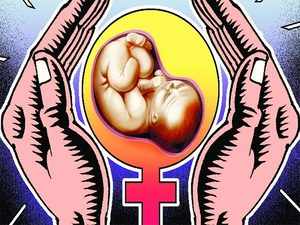ET Bureau|
Jan 30, 2018, 12.56 AM IST

NEW DELHI: India has an estimated 21 million notionally "unwanted" girls and families continue to have children until they have the desired number of sons, the pink-colour Economic Survey has estimated for the first time while outlining the need to increase women participation in farm and non-farm sectors.
Laying a special emphasis on gender and son "meta"-preference (families continuing to have children until they have the desired number of sons), the survey has suggested that the country as a whole should commit itself to gender equality and empowerment of women, so as to help India move up the ranks on gender outcomes.
"Just as India has committed to moving up the ranks in the ease of doing business indicators, it should perhaps do so on the gender outcomes as well. Here, the aim should be broader," the Survey said.
According to the Survey, many of the gender outcomes are manifestations of a deeper societal preference, even meta-preference for boys leading to many "missing" women and "unwanted" girls. "So, Indian society as a whole should perhaps resolve to consign these odious categories to history soon," it said.
Pointing out that women participation in the country's workforce has declined from 36% in 2005-06 to 24% in 2015-16, the Survey has highlighted the importance of increasing opportunities for women in education and employment.

The Survey has also proposed an agricultural policy aimed at integrating women as active agents in rural transformation. The idea is to help women farmers get enhanced access to resources such as credit, technology and training.
The entitlements of women farmers will be the key to improve agriculture productivity, it said, even as it noted that there is an increasing number of women in multiple roles in the agriculture sector, as cultivators, entrepreneurs and labourers. The government has earmarked 30% of the budget allocation for women beneficiaries in all ongoing schemes, programmes and development activities.
It is also focusing on women self-help groups to connect them to micro credit through capacity building activities and to provide information and ensure their representation in decision making bodies.Analysing the multiple rounds of the Demographic Health Survey and National Family Health Survey over last 10-15 years, the Survey said while India's performance has improved on 14 out of 17 indicators of women's agency, attitudes and outcomes, the country has to traverse some distance to catch up with other countries on women employment and use of reversible contraception as development on its own has not proved to be an antidote.
Read more at:
No comments:
Post a Comment